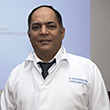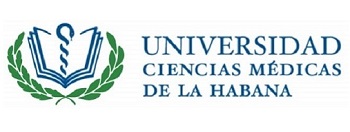
Head Profesor: Adolfo Hidalgo Gonzalez, MD
First degree specialist in Otorhinolaryngology.
Associate Professor.
Price: 18,360.00 USD
Payment method:
Consult payment information:
Registration open throughout the year except from December 15 to January 15.
Duration: 47 weeks.
Addressed to: Specialists in ORL and Neurosurgery.
General objectives:
Topics and contents
Module 1: Technological Generalities of Minimally Invasive Surgery in ORL.
Module 2: Trans Nasal Endoscopic Surgery.
Module 3: Endoscopic Trans Nasal Surgery of the Skull Base from the Perspective of the Otorhinolaryngologist.
Module 4: Generalities in Diagnostic and Therapeutic Respiratory Endoscopy
Module 5:
Module 6: Esophageal Endoscopy in ORL.
Price: 18,360.00 USD
Payment method:
Contac:
CNCMA Teaching Secretary
docencia@cce.sld.cu
